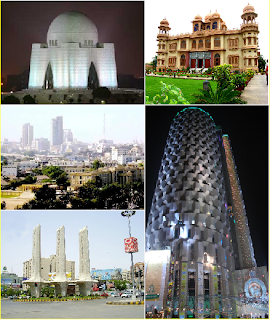 “Do,” in case that was perplexing, means “two” in Urdu–which is one of my dad’s native languages, the native language of Pakistan. Pakistan, of course, is part of South Asia–the Indian subcontinent–and May just happens to be Asian Pacific Heritage Month. Like Tanita, I thought that Color Online’s idea for celebrating Asian Heritage Month was unique and fun. I also thought it would be a great opportunity for me to appreciate a part of my own heritage: half of it, to be exact.
“Do,” in case that was perplexing, means “two” in Urdu–which is one of my dad’s native languages, the native language of Pakistan. Pakistan, of course, is part of South Asia–the Indian subcontinent–and May just happens to be Asian Pacific Heritage Month. Like Tanita, I thought that Color Online’s idea for celebrating Asian Heritage Month was unique and fun. I also thought it would be a great opportunity for me to appreciate a part of my own heritage: half of it, to be exact.
After all, that side of me needs some appreciation. My Urdu skills are at about the level of a small child. I still haven’t been to Karachi (see photo above) to visit relatives, nor have I yet visited the family’s pre-Partition city of origin, Delhi. I’d like to one day. In the meantime, I’ll appreciate my heritage in a bit more literary fashion, by answering some of the questions from Color Online.
Favorite Asian/Asian-American Writers and Their Works: Well, as Tanita already pointed out, Jhumpa Lahiri is fabulous, especially her short story collection Interpreter of Maladies. Another South Asian writer I really admire–one whom not many people know is South Asian–is Michael Ondaatje, who is from Sri Lanka. His novels The English Patient and Anil’s Ghost are excellent, as is his memoir Running in the Family. I like some of Salman Rushdie’s work, especially Midnight’s Children. Last but not least, don’t miss the work of poet Rabindranath Tagore. For more suggestions, see Tanita’s post.
Share Some History or Geography: My husband and I both have some awareness of the history of our Asian heritage, at least on a personal level. I’m always a little amazed when I think about the fact that my father was born in India a handful of years prior to its Partition into India, Pakistan, and East Pakistan, and much of the family fled on the train from Delhi into Pakistan. We still have some relatives in Delhi and Bombay (HUGE extended family–don’t get me started), but the majority are in Karachi, with a few here in the U.S. and a couple in the U.K.
Meanwhile, my husband’s Cantonese side of the family has been in the United States for a few generations, so he doesn’t know of any family still in China. His forebears came over to California during or even before the railroads, and his great-grandfather was a paper son who arrived via Angel Island. My mother-in-law and much of her family grew up in San Francisco’s Chinatown, though most of the family is now scattered around the Bay Area.
We cover a lot of ground between the two of us–not even counting the various European countries represented. And there are times when mixed heritage leads to mixed feelings, confusion, or even awkwardness–people say things that are potentially offensive, not realizing that they’re speaking to someone with Muslim relatives, or Chinese ancestry. But that’s another story!
Nonfiction? I’ll just go straight to cookbooks. (You know we’re obsessed with food here around FW.) I really like the Indian cookbook I have–Madhur Jaffrey’s Quick and Easy Indian Cooking. There are a number of other Indian cookbooks by the same author. We also own a REALLY comprehensive tome of a Chinese cookbook called The Thousand Recipe Chinese Cookbook by Gloria Bley Miller, which my mother-in-law gave us.
Be Creative–Share a Quote or Passage. I’ll leave you with this excerpt from Rabindranath Tagore’s Gitanjali:
Where the mind is without fear and the head is held high;
Where knowledge is free;
Where the world has not been broken up into fragments by narrow domestic walls;
Where words come out from the depth of truth;
Where tireless striving stretches its arms towards perfection;
Where the clear stream of reason has not lost its way into the dreary desert sand of dead habit;
Where the mind is led forward by thee into ever-widening thought and action—
Into that heaven of freedom, my Father, let my country awake.
That’s beautiful. Truly.
And thanks for sharing your family’s history. What riches! I feel utterly boring by comparison. 🙂
(Um… Sara, after hearing all about your family I don’t think you could ever be boring. Everyone has their own cultural mixes, and your culture just perhaps has less to do with countries than tradition and family.)
The poem really is lovely.
Thanks. 🙂 If you like the poem, I’d highly suggest going to the linked web page for the full text of the Gitanjali and taking a look–it was really hard to choose a section because all of it is so striking. I think that was his Nobel Prize-winning work.
I almost thought I should save it for Poetry Friday, but I couldn’t wait!
How did I miss this post?? I'm so glad you won a set of books for it, because it got me to go back and read it. I love the way you combined writing about your own heritage with writing about favorite books. The latest Diversity Roll Call is about children's books. Would love to have you participate again!
About the books you won, I'm still working on the winners post and I'm about to go to bed, but you can see the prize here: Diversity Rocks May giveaway. You won the Asian set. Email me at worducopia/at/gmail/dot/com with your street address and I'll have them sent to you. Congratulations!